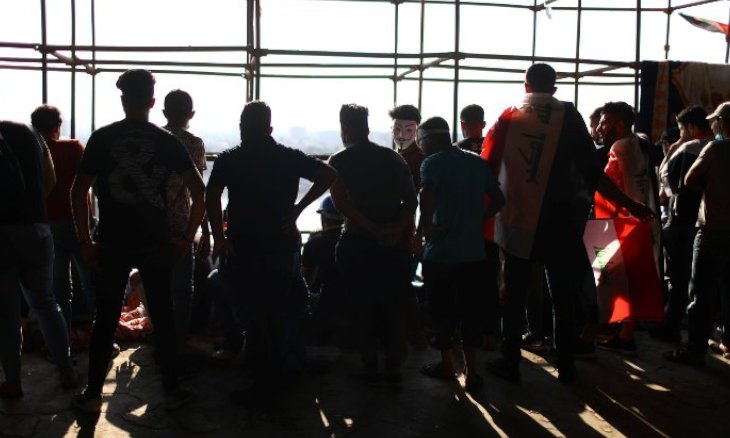Iraqi protesters claim 'Turkish Restaurant' as makeshift headquarters
As protests against poverty and corruption carry on in oil-rich Iraq, a building overlooking Baghdad's Tahrir Square has become the headquarters of the protests. The building is widely referred to as the 'Turkish restaurant'.It now serves as the epicenter of protests against Prime Minister Adil Abdul-Mahdi that erupted early last month.
Duvar English
As protests against poverty and corruption carry on in oil-rich Iraq, a building overlooking Baghdad's Tahrir Square has become the headquarters of the protesters. The building is widely referred to as the 'Turkish restaurant'.
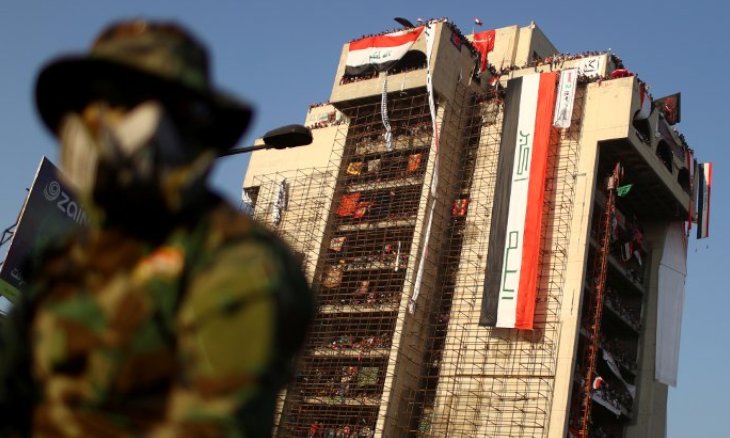
An abandoned shopping mall, the building is referred to as the "Turkish Restaurant" among Iraqis as a restaurant occupied its top-floor during the 1980s. The 18-floor building was abandoned after being bombed during the Iraq War (2003-2011). It now serves as the epicenter of protests against Prime Minister Adil Abdul-Mahdi that erupted early last October.
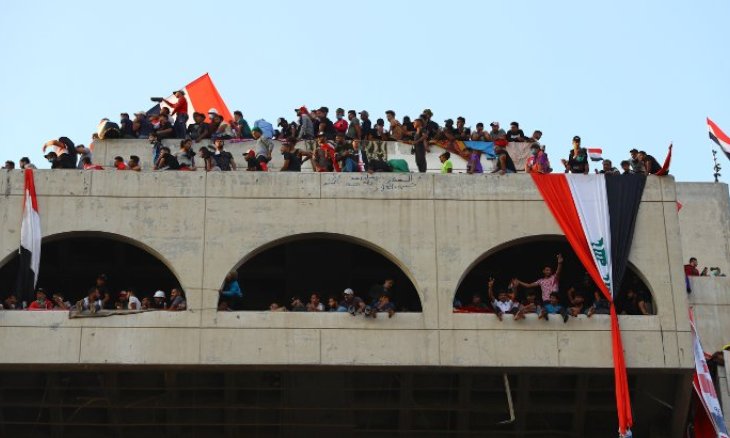
Protesters say they decided to occupy the building after it was used by security forces to fire upon them during the first days of the demonstrations.
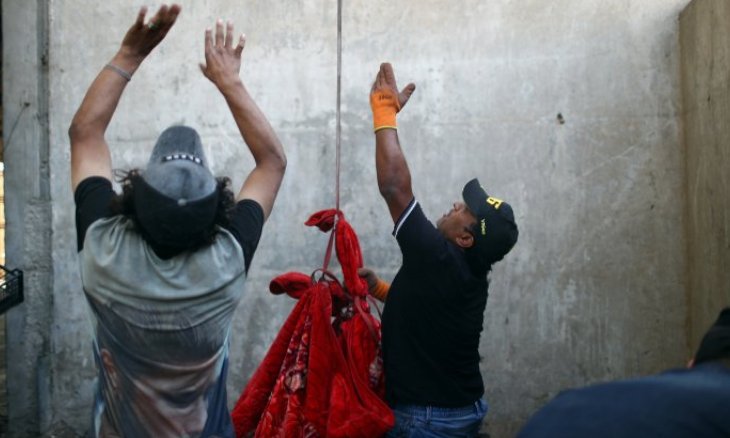
Young men at the entrance of the building who describe themselves as "logistical support committee" organize the distribution of donated clothes, food, phone batteries, blankets and cigarettes.
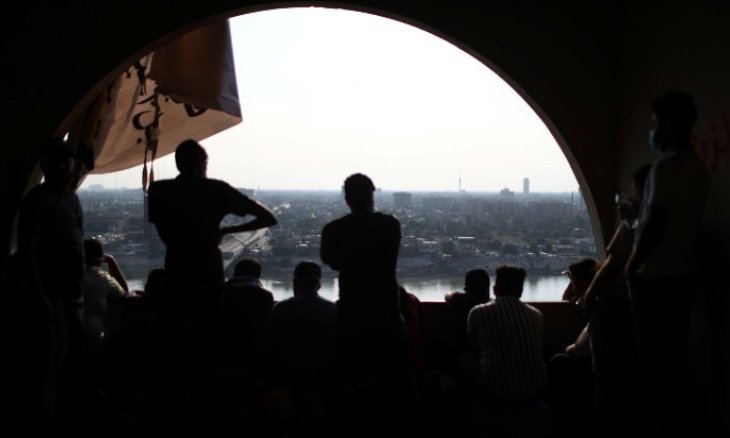
On the ninth floor, young men wrapped in Iraqi flags can be seen sitting as they watch protests taking place on Tahrir Square. In the distance lies the Republic Bridge which has been the scene of many clashes in the past couple of days. The bridge leads to the heavily fortified Green Zone which houses government buildings and foreign missions.
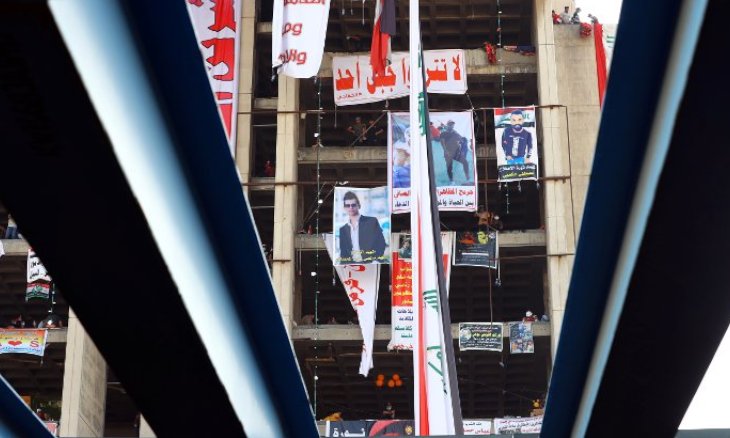
In the building's lower levels, another group of young men distribute notices listing their demands. As a basket is sent down from the third floor, a protester sporting a gorilla mask shouts: "We need razors up here. And don't forget bread, we are starving!"
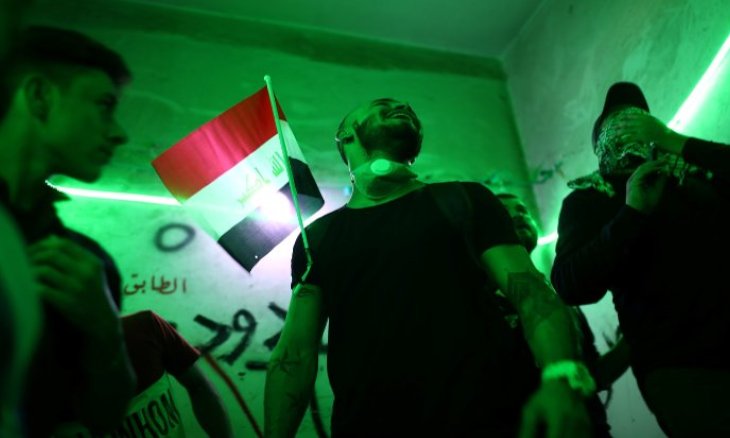
As protests continue outside at full steam and Iraqi police continue to attack with water cannons and sometimes real bullets, the 18th floor of the Turkish Restaurant often has an atmosphere of cheerfulness; people dance to anti-government slogans, smoke hookah and organize backgammon tournaments.
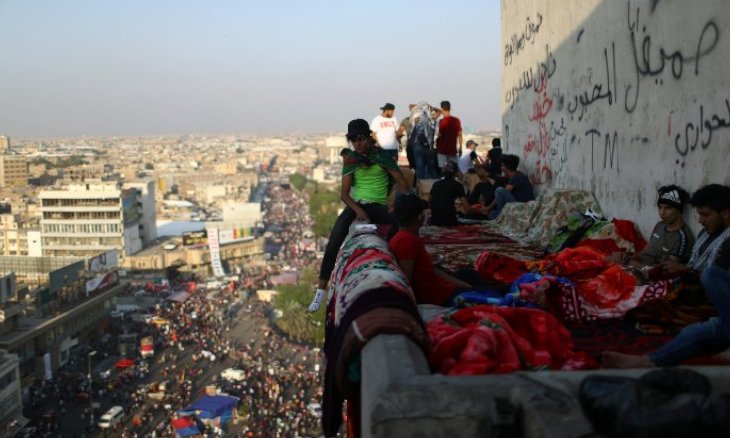
Some protesters now call the building Mount Uhud, a reference to a mountain in Medina, where early Muslims battled those who sought to destroy the nascent religion. That battle ended in defeat.
“They tried more than once to enter, they used violence, they used tear gas, some of us died, but we did not leave this building,” said Khalil Ibrahim, a 28-year-old mechanical engineering graduate who introduced himself as the 14th floor spokesman. He told Reuters that he has not been able to find work for the past three years.
“We will stay until this corrupt regime and this subservient government fall,” he said.
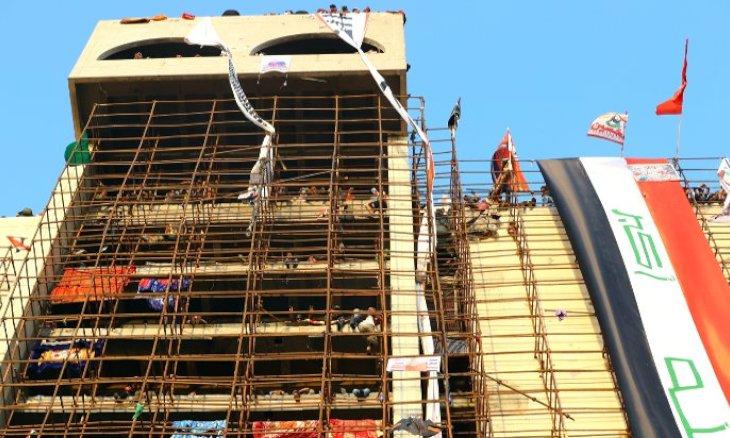
“We’re here to help our children – these young people fighting for their country,” said a 44-year-old doctor who gave only her first name, Sahar. She had brought her son and daughter, also a doctor, to the protests to help distribute $400 worth of supplies she has brought.
“If we don’t help, who will? Neither the Ministry of Health nor our own hospitals will give us supplies to help treat wounded protesters,” she said.
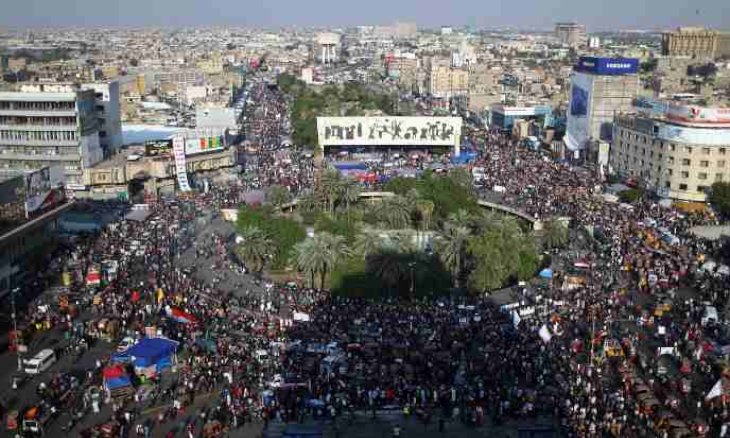
Nearby, Bashir Ghalib, an engineer wearing a white construction hat, told young men how to set up an electric grid.
“We worked with volunteers and donors to install electricity in the Turkish Restaurant within six hours while successive governments have not been able to bring light in 16 years,” he said.
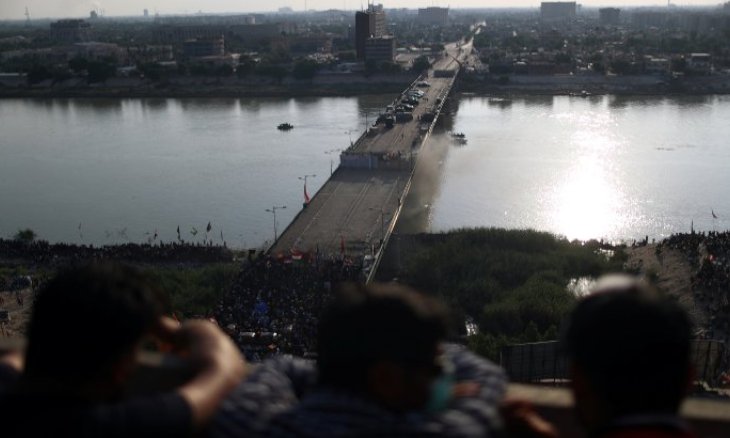
The protests have drawn tens of thousands of Iraqis to the streets from all religions and sects. More than 250 people have been killed nationwide since the protests started.
